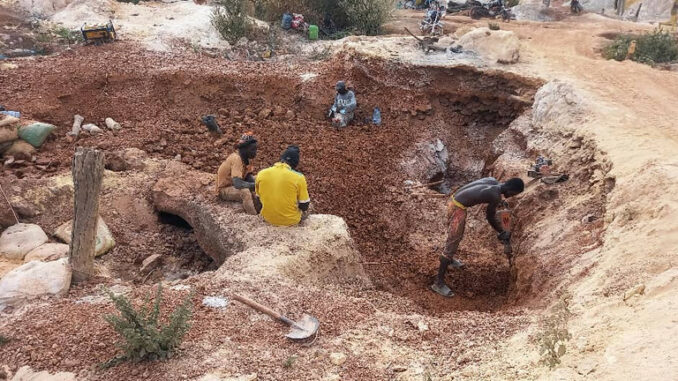
The volatile goldfields of southern Mali have once again been thrust into chaos following a brazen double assault by an unidentified armed group in the Narena Commune (south Mali).
Early Monday, May 12, assailants torched heavy mining machinery, abducted two Chinese nationals, and claimed the lives of three miners—one Malian and two Ghanaians—at an artisanal site.
Though no faction has claimed responsibility, the attack bears the grim imprint of JNIM, the al-Qaida-affiliated militants whose presence in the region has grown bolder amid Mali’s deteriorating security landscape.
This fresh surge of violence underscores the perilous nexus between Mali’s gold economy and extremist financing. With gold accounting for over 80% of the nation’s exports and more than two million citizens relying on the sector, artisanal mines have become both lifelines and targets. These informal operations, often under-regulated and cash-based, are increasingly vulnerable to exploitation by armed groups who siphon off profits to fund insurgencies. The attack is not merely a tragedy—it is a signal of how the country’s mineral wealth is becoming a war chest for destabilization.
Since the 2020 military coup, Mali’s rulers have struggled to fulfil their pledge of restoring order. By severing historic defense ties with Western allies and aligning with Russia, the regime hoped to chart a new course. Yet, attacks have intensified, political freedoms have been curtailed, and the silence of democratic institutions grows deafening. As Mali’s rulers entrench themselves, the specter of violence stretches deeper into the nation’s economic arteries—leaving miners, civilians, and the promise of prosperity increasingly at the mercy of the gun.
